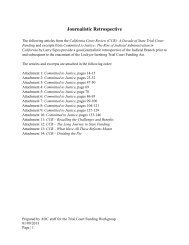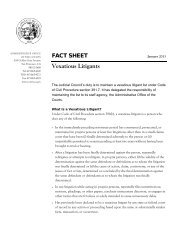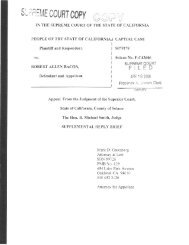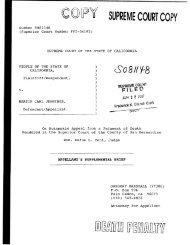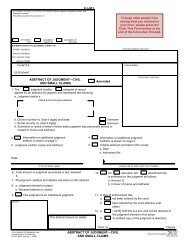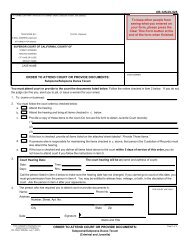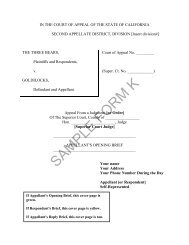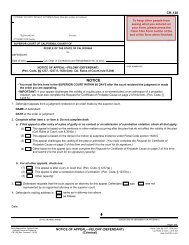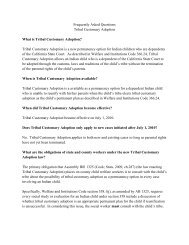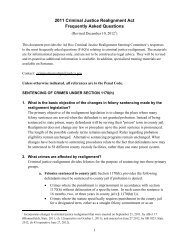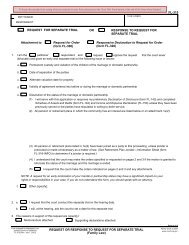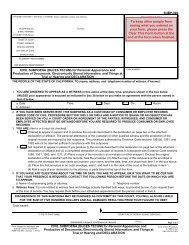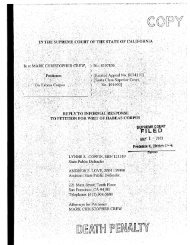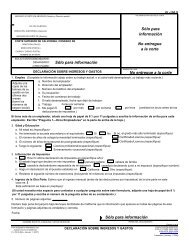Appellant, William Satele, Reply Brief - California Courts - State of ...
Appellant, William Satele, Reply Brief - California Courts - State of ...
Appellant, William Satele, Reply Brief - California Courts - State of ...
You also want an ePaper? Increase the reach of your titles
YUMPU automatically turns print PDFs into web optimized ePapers that Google loves.
Cal.App.3d 970, 992.) Instead, respondent simply recites evidence pertaining to<br />
gang customs and culture and the defendants' gang membership and to Ernie<br />
Vasquez's highly improbable testimony that both appellant and Nunez<br />
individually divulged their guilt to him during his single jailhouse contact with<br />
each <strong>of</strong> them. (RB at pp. 172-174.) Respondent falls far short <strong>of</strong> carrying the<br />
burden <strong>of</strong>showing the instructional error was harmless beyond a reasonable doubt.<br />
(Chapman v. <strong>California</strong>, supra, 386 U.S. at p. 24.)<br />
Moreover, the jury's rejection <strong>of</strong> the prosecution's motive theory - that<br />
appellant and Nunez shot and killed two African-Americans because <strong>of</strong> their race<br />
for gang purposes, as appellant has discussed above and in the opening brief <br />
demonstrates that but for the instructional error it is "reasonably probable" the trier<br />
<strong>of</strong> fact would have reached a result more favorable to the defendant. (People v.<br />
Watson, supra, 46 Ca1.2d 818, 836.) For these reasons, appellant respectfully<br />
submits, reversal <strong>of</strong>the gang benefit enhancement is warranted.<br />
E. The Consequences Of The Instructional Error Reached Beyond The Gang<br />
Benefit Enhancement<br />
1. <strong>Appellant</strong>s Did Not Forfeit Their Fifth, Sixth, Eighth, And Fourteenth<br />
Amendment Claims<br />
<strong>Appellant</strong> contended the instructional error complained <strong>of</strong>here violated his<br />
Fifth and Fourteenth Amendment right to due process <strong>of</strong> law, as well as the Sixth<br />
Amendment notice and jury trial guarantees that any fact, other than a prior<br />
conviction, that increases the maximum penalty for a crime must be charged in a<br />
pleading, submitted to a jury, and proven beyond a reasonable doubt. (Blakely v.<br />
Washington (2004) 542 U.S. 296; Apprendi v. New Jersey (2000) 530 U.S. 466;<br />
In re Winship (1970) 397 U.S. 358, 364.) Because a sentence enhancement<br />
requires findings <strong>of</strong>fact that increase the maximum penalty for a crime, the United<br />
<strong>State</strong>s Supreme Court has held that the Apprendi rule applies specifically to<br />
47



